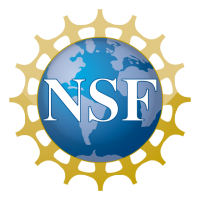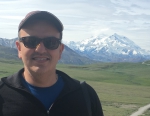By: Roberto Delgado Program Director, Arctic Observing Network, Section for Arctic Sciences, Office of Polar Programs, National Science Foundation

Navigating the New Arctic (NNA) is one of NSF's 10 Big Ideas. It embodies the Foundation's forward-looking response to the profound challenges associated with the Arctic. Navigating the New Arctic (Solicitation NSF 19-511) tackles scientific challenges in the rapidly changing Arctic and seeks innovations in Arctic observational networks and fundamental convergence research across the social, natural, environmental, computing and information sciences, and engineering that address the intersection of natural, social, and built systems. To successfully address questions at the intersection between the natural environment, the built environment, and social systems, proposals are expected to be convergent in nature, and the most competitive proposals will include expertise from multiple traditionally distinct and independent science and engineering disciplines.
NNA promotes initiatives that empower new research communities, diversifies the next generation of Arctic researchers, integrates knowledge co-production, and engages partnerships, particularly among international stakeholders. NNA also strongly encourages projects that include or focus on advancing Science, Technology, Engineering, and Mathematics (STEM) education and workforce objectives, including strengthening STEM education, graduate training, and research capacity.
Given the Indigenous presence across the Arctic and their broad local and historical knowledge regarding the changing Arctic, NSF encourages direct collaboration and knowledge co-production with Indigenous residents and local institutions and organizations at all project stages, as appropriate; please see the IARPC Principles for Conducting Research in the Arctic.
NNA's goals include:
- Improved understanding of Arctic change and its local and global effects that capitalize on innovative and optimized observation infrastructure, advances in understanding of fundamental processes, and new approaches to modeling interactions among the natural environment, built environment, and social systems;
- New enhanced research communities that are diverse, integrative, and well-positioned to carry out convergence research at the intersections of Arctic natural and built environments and social systems; and
- Research outcomes that inform U.S. national security and economic development needs and enable resilient, sustainable Arctic communities.
NNA requests proposals that fall within two tracks. Track 1: Research Grants must have a budget of no more than $3,000,000 and a maximum duration of 5 years. Track 2: Planning Grants must have a total budget of no more than $250,000 and a maximum duration of 24 months.
Track 1 proposals must address at least one, and preferably more than one, of the following five research focus areas
- Arctic observational networks, instruments and technologies; shared and open data collections; and/or intelligent data management, analysis, and/or modeling efforts;
- Understand and forecast interdependent changes in the biogeochemical, geophysical, biological, ecological, institutional, and social processes;
- Fundamental science and engineering research in forward-looking, sustainable, adaptable, and resilient infrastructure;
- Complex relationship between Arctic residents and their natural and cultural landscape; and
- Global influences, consequences, and opportunities arising from a changing Arctic.
Under Track 2, NNA calls for proposals to support planning activities leading to convergence research team formation and capacity-building within the research community to address the important challenges of the changing Arctic, its global impact, and advancing Arctic science and engineering through education. Proposals should show clear potential to develop novel, leading-edge research ideas and approaches that integrate across natural, social, and built environments to target significant societal challenges, build meaningful educational opportunities, and engage internationally and with local and Indigenous communities, as appropriate.
For more information, join one of the webinars with NNA Program Officers to learn more about Navigating the New Arctic. Each Webinar session will begin with a short presentation followed by a Q&A with the Program Officers. If you are unable to join our webinars live, the webinar slides are available as a PowerPoint presentation. An audio recording will start when the presentation is initiated. (Editor's note: this is a large file, please allow time for downloading.)
The remaining webinars will be on:
Thursday January 10, 2019 | 3-4:30pm Eastern Standard Time (GMT-05:00)
Monday January 14, 2019 | 3-4:30pm Eastern Standard Time (GMT-05:00)
Webinar information and how to join.
The deadline for proposal submission is Thursday, 14 February 2019. For further questions regarding the NNA solicitation, please review the Frequently Asked Questions carefully. If you still have questions after reviewing the FAQs, then you may reach the NNA Working Group by sending an email to NNA [at] nsf.gov.
About the Author
 Roberto Delgado is the program director for the Arctic Observing Network (AON) in NSF's Office of Polar Programs (OPP). He was previously with the National Institutes of Health, where he served as a program chief; co-led the Interagency Arctic Research Policy Committee (IARPC) Health and Wellbeing Collaboration Team; coordinated the Arctic Council's RISING SUN initiative; and managed research grants focused on resilience and well-being among rural, global, Arctic, and American Indian and Alaska Native communities. He earned his doctorate in biological anthropology and anatomy (now evolutionary anthropology) from Duke University, with expertise in evolutionary ecology, terrestrial ecosystems, and wildlife biology. He also previously held research faculty positions at Hunter College of the City University of New York and the University of Southern California. In addition to directing AON, he also is involved in NSF's Navigating the New Arctic Big Idea. He may be reached at his office at 703-292-2397 or via email at robdelga [at] nsf.gov.
Roberto Delgado is the program director for the Arctic Observing Network (AON) in NSF's Office of Polar Programs (OPP). He was previously with the National Institutes of Health, where he served as a program chief; co-led the Interagency Arctic Research Policy Committee (IARPC) Health and Wellbeing Collaboration Team; coordinated the Arctic Council's RISING SUN initiative; and managed research grants focused on resilience and well-being among rural, global, Arctic, and American Indian and Alaska Native communities. He earned his doctorate in biological anthropology and anatomy (now evolutionary anthropology) from Duke University, with expertise in evolutionary ecology, terrestrial ecosystems, and wildlife biology. He also previously held research faculty positions at Hunter College of the City University of New York and the University of Southern California. In addition to directing AON, he also is involved in NSF's Navigating the New Arctic Big Idea. He may be reached at his office at 703-292-2397 or via email at robdelga [at] nsf.gov.
